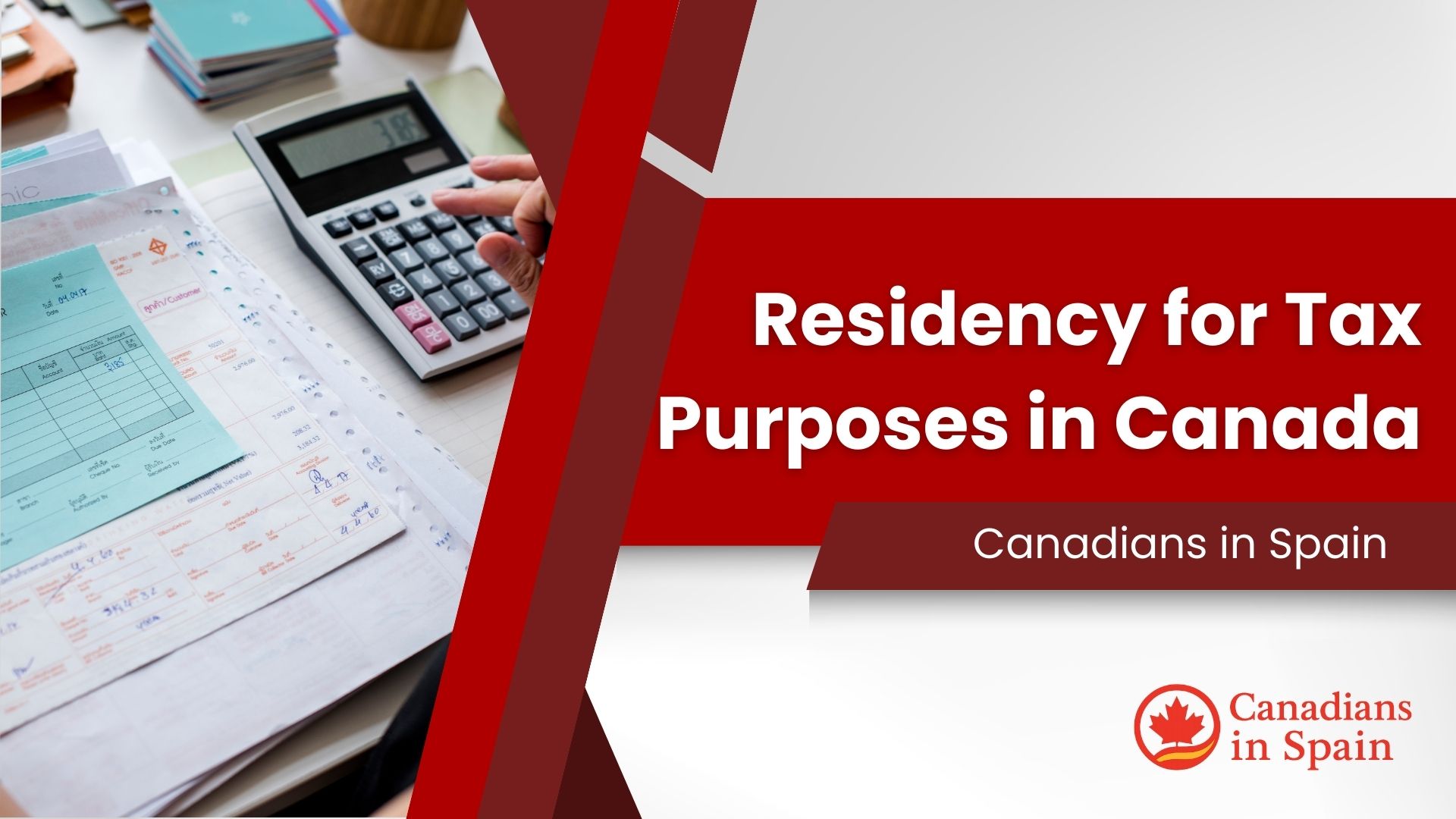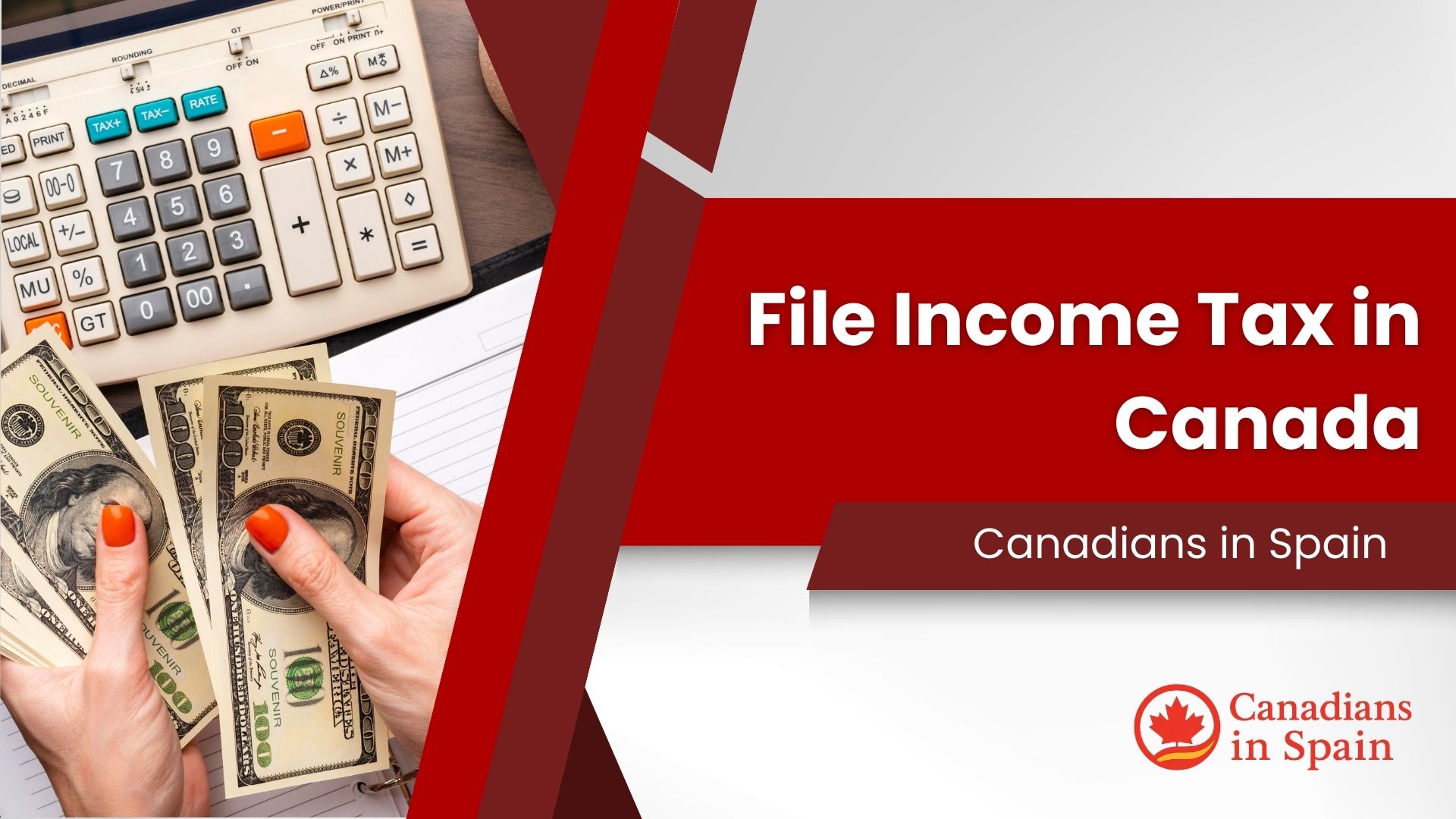The Ultimate Guide: Understanding the CRA’s “Deemed Resident” of Canada Rule in Spain
If you are a Canadian citizen thinking about moving to Spain or already living there, understanding how the Canada Revenue Agency (CRA) views your tax residency is critical. Even after you leave the country, you may still be considered a deemed resident of Canada for tax purposes, a status that carries significant financial implications.
This guide explains what a deemed resident of Canada is, how it differs from other residency types, the tax consequences, and how the Canada-Spain tax treaty affects your situation.
What is a Deemed Resident of Canada?
A deemed resident of Canada is someone who, while not meeting the criteria of a “factual resident” (i.e., they do not have significant residential ties), is still considered a Canadian tax resident by law under specific conditions defined in the Income Tax Act. This status is not based on your intentions, but on a set of clear rules enforced by the CRA.
For Canadians in Spain, the most common scenario that could trigger this is spending too much time back in Canada during a calendar year.
How is Deemed Residency Different from Other Statuses?
It’s important to distinguish between the different residency types:
- Factual Resident: Someone who has significant residential ties to Canada (a home, spouse, or dependents in Canada). They are taxed on their worldwide income.
- Deemed Resident: Someone who does not have significant ties but meets certain conditions, such as the 183-day rule. They are also taxed on their worldwide income.
- Non-Resident: Someone who has formally severed residential ties with Canada and lives abroad permanently. They are only taxed on their Canadian-source income.
- Deemed Non-Resident: Someone who is a resident of both Canada and a treaty country (like Spain) but is considered a resident of the other country under the treaty’s “tie-breaker rules.”
Criteria for Being Deemed a Resident
According to the CRA, you may be considered a deemed resident of Canada for a whole tax year if you meet certain criteria. The most relevant condition for most individuals is the 183-day rule.
You are a deemed resident of Canada if you:
- Stay in Canada for 183 days or more in a calendar year; AND
- Are not considered a resident of another country under the terms of a tax treaty that Canada has with that country.
Other categories include government employees abroad and members of the Canadian Forces, but the 183-day rule is the one that most often affects expats who make extended visits back to Canada.
What are the Tax Implications of Being a Deemed Resident?
If the CRA classifies you as a deemed resident of Canada, you will be taxed as if you were a factual resident. This means:
- You must file a Canadian income tax return.
- You are taxed on your worldwide income, not just your Canadian-source income. This includes any salary, business income, or investment gains you earned while in Spain.
- You may be required to file additional reporting forms, such as Form T1135 (Foreign Income Verification Statement), if you hold foreign assets with a total cost over CAD $100,000.
This is a critical point: being a deemed resident of Canada can create a significant and unexpected tax burden if you are not prepared.
What if You Are Also Considered a Tax Resident of Spain?
Spain generally considers you a tax resident if you spend more than 183 days there in a calendar year or if your primary economic interests are in Spain. If you meet the criteria to be a deemed resident of Canada and also a resident of Spain, you become a “dual resident.”
In this case, the Canada-Spain tax treaty comes into effect. The treaty includes “tie-breaker rules” to determine which country has the primary right to tax you as a resident:
- Where you have a permanent home available to you.
- Where your “center of vital interests” lies (your personal and economic ties are closer).
- Where you have a habitual abode.
- Your nationality.
If Spain is determined to be your primary place of residence under these rules, the CRA will then treat you as a deemed non-resident of Canada for that year. This means you will only be taxed on your Canadian-source income. However, this is not automatic; you must claim this status on your Canadian tax return.
How to Avoid Being a Deemed Resident of Canada
To avoid being unexpectedly classified as a deemed resident of Canada while living in Spain, you should:
- Keep your annual visits to Canada under 183 days. This is the most straightforward way to avoid triggering the rule.
- Formally sever your residential ties with Canada when you move. This strengthens your case as a non-resident.
- Establish clear and legal residency in Spain, including registering with the local authorities (empadronamiento) and the Spanish tax office.
- Notify the CRA of your departure by filing a departure tax return in the year you leave.
Frequently Asked Questions (FAQ)
What exactly counts as a “day” for the 183-day rule?
The CRA considers any part of a day spent in Canada as a full day. This means the day you arrive and the day you leave both count towards your total. It’s essential to keep careful track of your travel dates.
If I am a deemed resident, do I get the same tax credits as a factual resident?
Not entirely. While you are taxed on worldwide income like a factual resident, a deemed resident of Canada is generally not eligible for the same provincial or territorial tax credits. You may also be subject to a federal surtax instead of provincial tax.
I have a vacation property in Canada. Does this make me a factual resident instead of a deemed resident?
It could. Owning a home in Canada is a significant residential tie. If you are a deemed resident of Canada solely because of the 183-day rule, but you also own a home that is available for your use, the CRA could argue that you are actually a “factual resident,” which is a stronger connection.
What happens if the CRA determines I was a deemed resident in a previous year and I didn’t file?
The CRA can retroactively assess you for taxes on your worldwide income for that year, plus late-filing penalties and interest. This can be a very costly situation, which is why understanding the rules for a deemed resident of Canada is so important.
How can I prove my residency status to the CRA if they ask?
You should keep detailed records, including flight itineraries, passport stamps, rental agreements or property deeds in Spain, Spanish utility bills, and your Spanish tax returns. These documents help prove that your center of vital interests is in Spain, which is crucial for applying the tax treaty tie-breaker rules.




